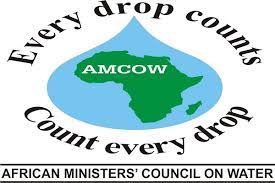By Asmau Ahmad
The African Ministers Council on Water (AMCOW) on Monday called on African countries to strengthen systems that would improve access to sanitation services for the people sustainably.
AMCOW’s Executive Secretary, Dr Rashid Mbaziira, made the call in an interview with newsmen in Abuja.
The executive secretary said AMCOW would continue to promote the implementation and utilisation of the African Sanitation Policy Guidelines (ASPG) in member countries.
He said the ASPG was formulated using standards from global best practices, saying it’s adoption would ensure safely managed sanitation services for the populace.
He said Nigeria had been a major partner in AMCOW’s activities, saying more efforts were needed to close the huge sanitation gaps in the country.
Dr Mbaziira noted the crucial importance of having a functioning system and stakeholders’ partnership, saying this would strengthen enabling environment for scaling up sanitation and hygiene services.
He said having a stand-alone sanitation and hygiene policy in the country was important and should be encouraged by all, adding that AMCOW would continue to work to see its acceptance.
“It would be a huge achievement for us if our host country Nigeria is utilising the ASPG being developed by a body that it has supported to such a great length, to also strengthen the enabling environment for sanitation and hygiene services provision.
“So, for us, it’s one of those things that we really are very keen to see take place, and we would like to render or contribute in any way we can to see to it that there is a sanitation and hygiene policy, whether stand-alone or contributing to other sectors.
“One that can enable the achievement of safely-managed sanitation for Nigeria, and for Nigerians, so it’s something that we are passionate about, and if we can promote it, by all means, appropriate, we should be able to do that.”
He said aligning sanitation policies in African countries in line with the ASPG would give it a legal backing for prioritisation and institutionalisation for continuity.
“So, now, the linkage to that is that we are recognising the global commitments that we have on SDG six or anything, we are recognising the Ngor commitments as we spoke about, those are continental commitments.
“And we are also recognising the cultural elements that are associated with some of the practices that we do, the norms that we have, and now putting them together in this group may have things and we’re saying that these are the elements, if your sanitation policy follows these elements, it should be able to assure safely managed sanitation in the African context.”
He congratulated the appointment of the two ministers in the Federal Ministry of Water Resources and Sanitation, saying their efforts to scale up hygiene practices was laudable and should be recognised by all.
He said AMCOW would continue to support their mission and mandate towards improving the water resources and sanitation sector of the country, saying the partnership was not only in Nigeria but at the continental level.
He said Nigeria’s position as the only permanent member of AMCOW’s Executive Committee recognised the country’s role in leadership of the organisation, adding that it ensured continuity and alignment of goals in a sustainable manner.
The executive secretary said the upcoming 7th Africa Sanitation and Hygiene conference (AfricaSan7) in Swakopmund, Namibia, was an opportunity to call all actors to action and a reflection in seeking options for safely managed sanitation services.
He said the AfricaSan7 was initiated to provide a platform for technical and political dialogue with governments and stakeholders to identify and share knowledge to address the sanitation and hygiene challenges in Africa.
“And of course, we also have to appreciate that a lot is going on, maybe not as appreciated as it should be, and we need to put that positive narrative out as well, not everything on sanitation and hygiene in Africa is bad.
“But maybe sometimes this is lost in certain messages, we need to get that message clearly that a lot is being done by our partners or investors, we need to celebrate that.
“And that should give us the impetus to also look into the things that are challenging for us to be able to do now and find the solutions that are working elsewhere that can be adapted to different circumstances in order to achieve the greater goal.”
Mbaziira said there was need to look at the upcoming AfricaSan7 as a moment of reflection and call to action to track progress for meeting the Sustainable Development Goals (SDGs) six.
He stressed that the conference will facilitate the assessment of progress by member states in meeting their sanitation and hygiene commitments, as outlined in the 2023 AfricaSan Ngor report.
He however welcomed all intending participants to enjoy the beautiful city of Swakopmund, saying it would be an opportunity to explore the UNESCO World Heritage Site.
The AfricaSan7 Conference, billed to hold from November 6 to November 11 in Swakopmund, Namibia.
The theme of the AfricaSan7 is: ‘Strengthening Systems and Partnerships for Accelerated Action on Safely Managed Sanitation and Hygiene.’


